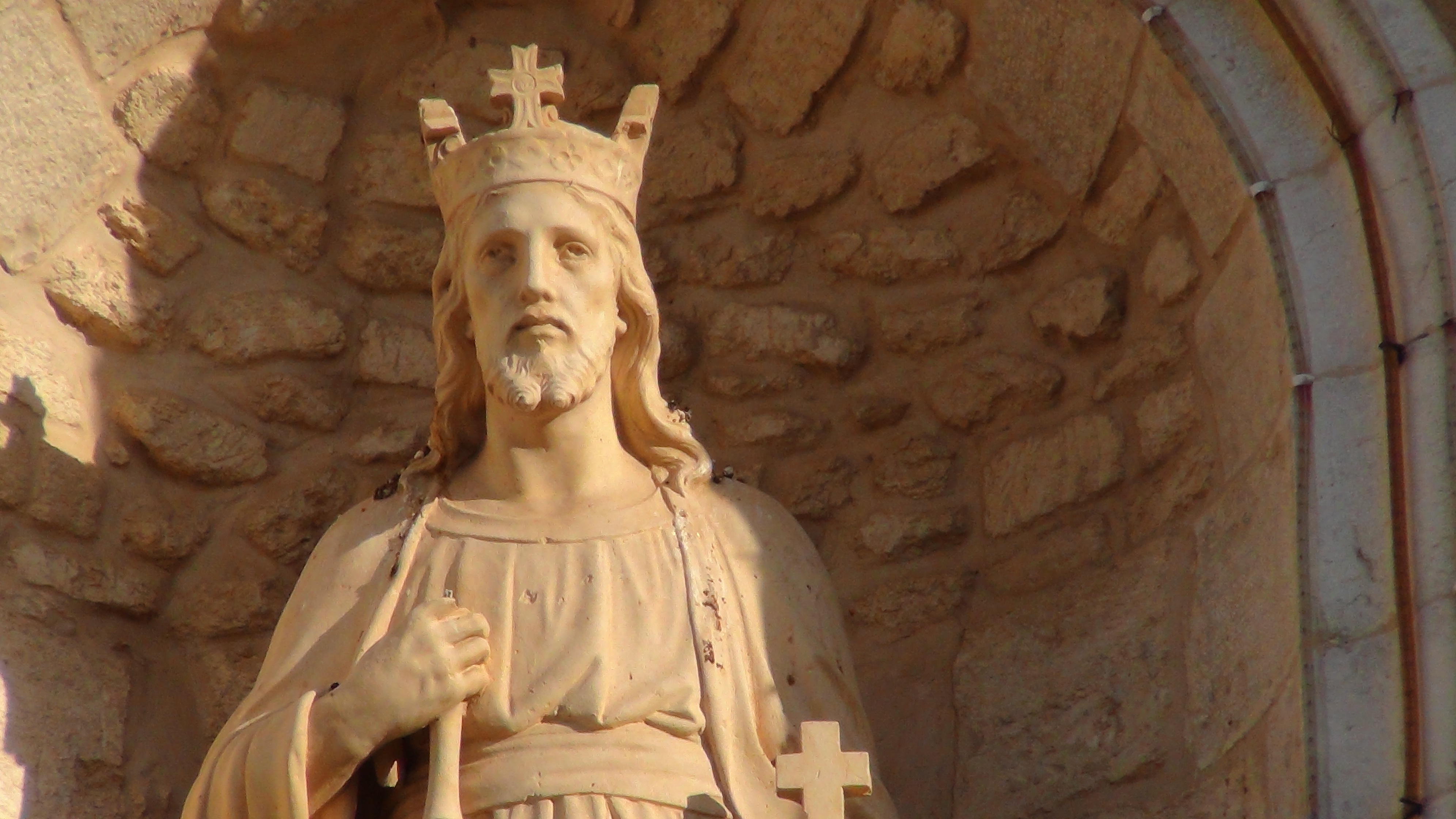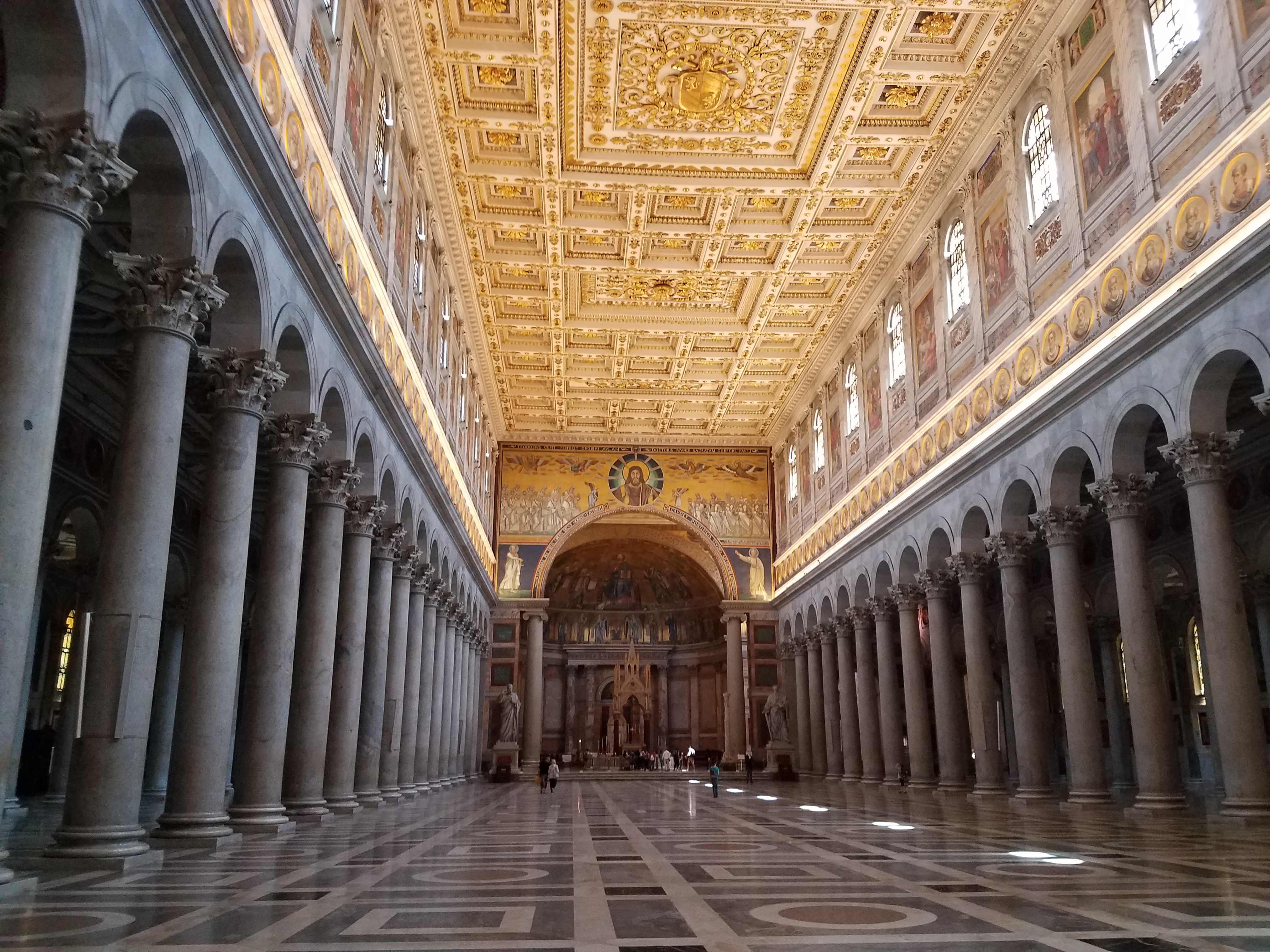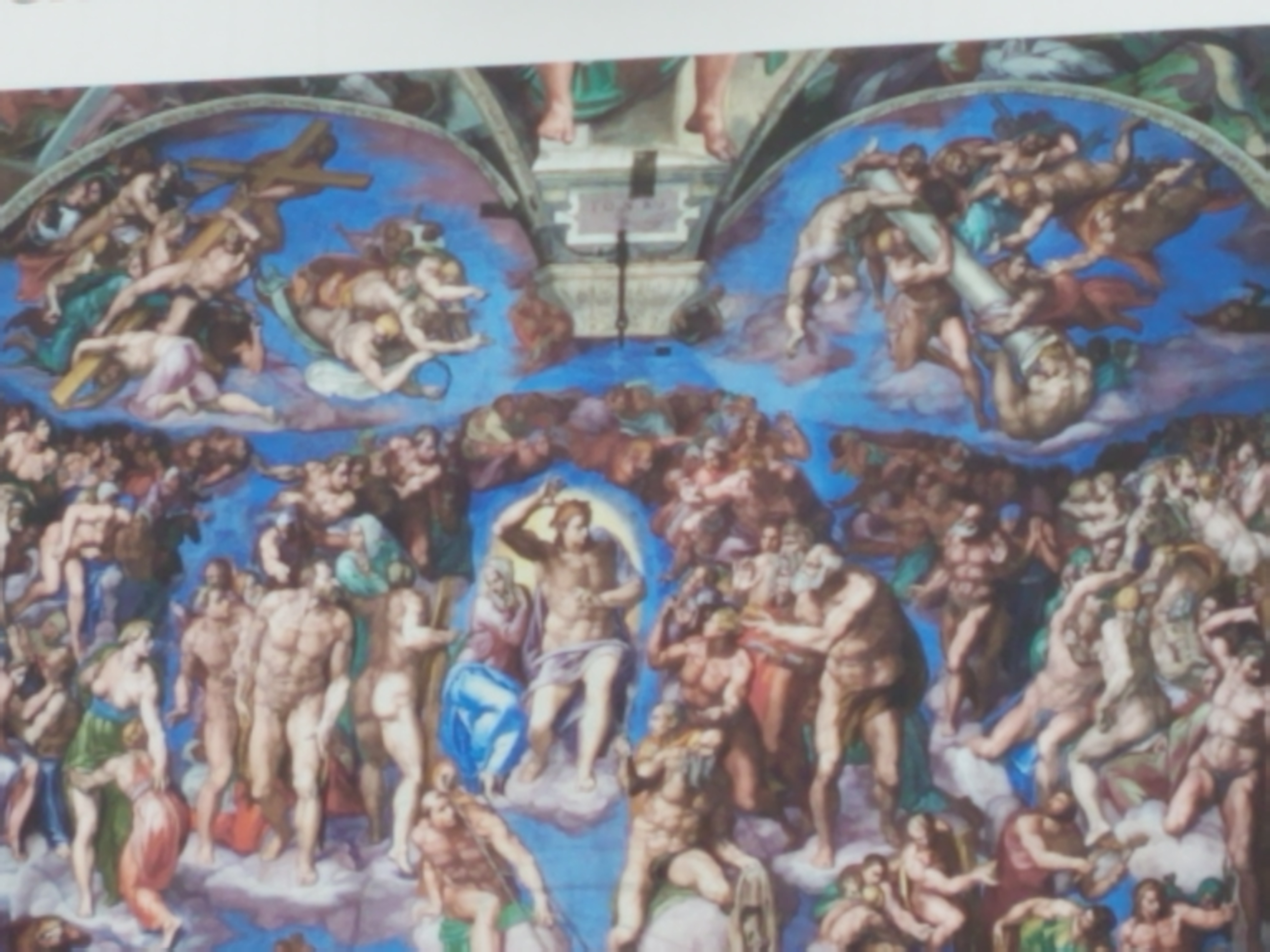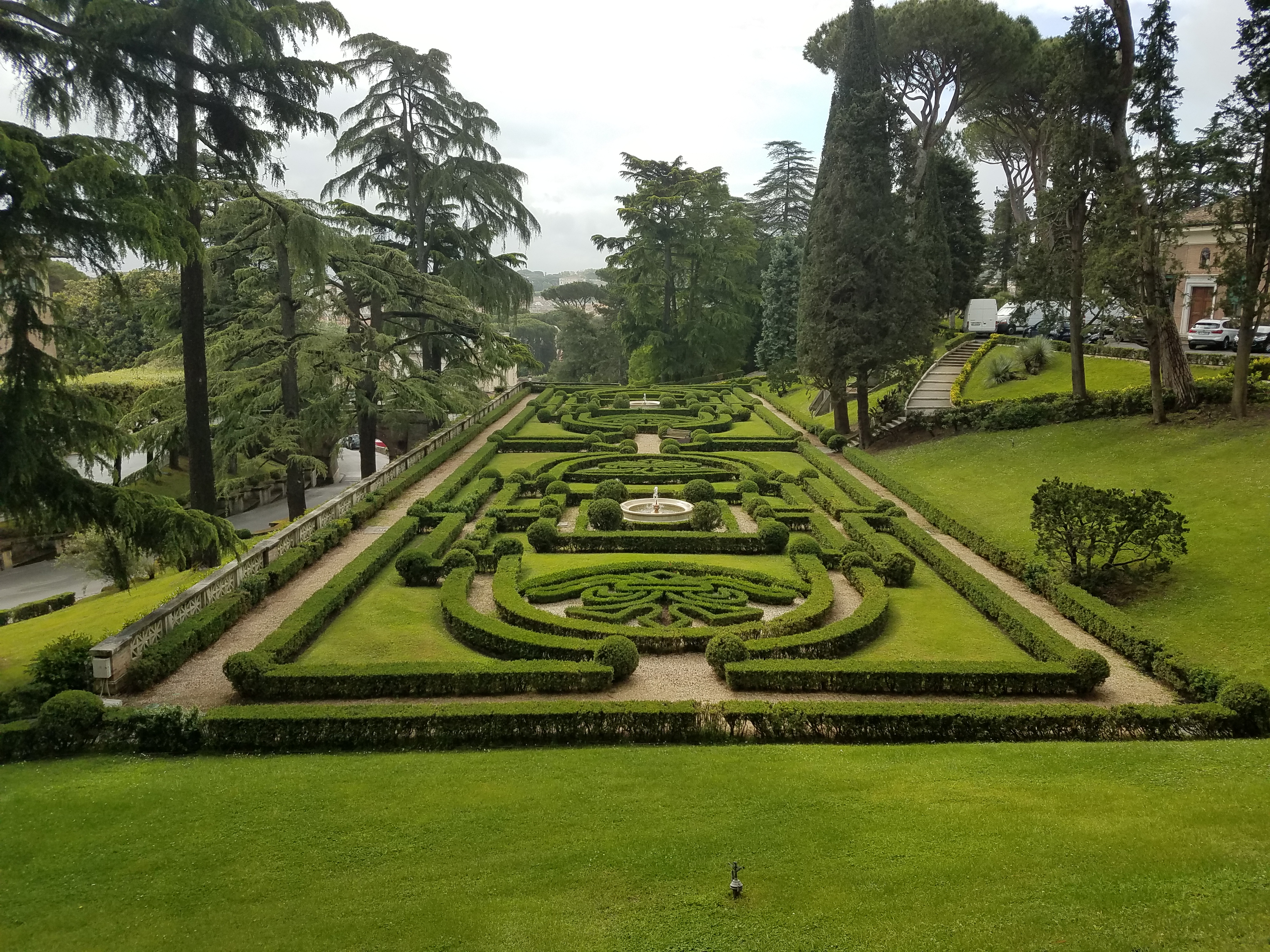2 Sam. 5:1-3; Ps. 122:1-5; 2 Col. 1:12-20; Lk. 23:35-43
“This is the King of the Jews”. The sign on the cross intended as a mockery was the fulfillment of the prophesy “the chosen one”. “He is the image of the invisible God.” How many representations of Jesus are made in picture, statue, woven yet regardless of the difference in image they give testimony to the one reality “the image of the invisible God” came in human condition into our history, the uncreated shares in the created humanity to be one with us.
“For in him were created all things in heaven and on earth”. This gives testimony to the Trinity, one God in three persons who “is before all things…and in him all things hold together.” All “things” exist by his will created for a purpose, a divine purpose. Are we living our divine purpose? This is where our joy lies.
“He is the beginning, the first born from the dead.” The God of the living for those living in Christ where death is but a rite of passage from our mortal bodies into the eternal state…but not all. Not everyone accepts the gift of life in Christ. Just as in times past some still believe there is no resurrection for the dead while others believe there is no hell and all inherit the kingdom. Free will means there is a choice. Just as scriptures speaks to the fallen angels from grace so is the fallen humanity by choice. Choose wisely!
His desire is “that in all things he himself might be preeminent.” Christ the King first in our lives. In his death and resurrection his kingship in the world “all the fullness was pleased to dwell.” Jesus dwells in us halleluiah! The King of Glory comes into our being to be one with us as he is in the Father and the Spirit. It is an invitation of transformation. Sometimes this is described as “less of me and more of Christ in me” as a giving up of our existence a “dying to self”. The God of the living is not asking for our death but to come and give us the fullness of life in him. Imagine if we allow him in every moment of life to transform us into being the greatest he created us to be “all the fullness” of life, love, and liberty is ours, free in Christ the King.
“It is through him to reconcile all things for him.” Our sins are forgiven through him as he promises the criminal “today you will be with me in Paradise”. Did he steal heaven or did Jesus snatch him out of the grasp of the devil because he turned to Jesus for mercy? Jesus saves! The wait for his kingdom has passed. Have we passed into the kingdom already present for us or is it passing us by as we reject the call to reconciliation? Jesus have mercy on us.
Jesus invites us into his love “making peace by the blood of his cross.” Many criticize the Church for keeping the image of Christ on the cross when he has resurrected. His presence on the cross is for the unrepentant sinner and today we have many in this world. He is the sacrifice on the altar to continue his suffering for our sins. When will we accept the fullness of his love and why the resistance to such an invitation?
I would call this a modern version of a parable. There were three men being offered a choice between a rock and a diamond. One was Jew, one Catholic, and one Protestant. Each man chooses the rock and rejects the perfect diamond. The Jewish man says he chooses the rock because of his sense of unworthiness. The Catholic man says he chooses the rock out of fear of responsibility for the diamond. The Protestant man says he chooses the rock to make it into its own diamond according to his image. Finally, a child playing passes by and grabs the diamond with no self-awareness, no fear, no intent but to enjoy its beauty. Grab the diamond, what are we waiting for?
The fullness of the diamond is in the Eucharist, body, blood, soul, and divinity. The kingdom is present and it comes into our bodies, soul, and spirit. Diamonds make laser cuts to root out the imperfect. The Eucharist is the diamond to receive this day and allow the fullness of Jesus to work in our being transforming us into his image, a diamond of holiness. All are invited to come and receive in this sacrament his love. The Church sets a process in Baptism and Reconciliation as our testimony of faith to give visible signs of our love of God. Receive and rejoice in Christ the King of Glory. Remember diamonds are forever!









Recent Comments